SOAR ignites change at ETHS
February 22, 2021
“When we’re starting to talk about race, it can turn into chaos, but just recognizing that folks come in from different lens perspectives gives us a way to authentically have a conversation in a very true way—humanizing the folks that we have these conversations with,” explains biology teacher TaRhonda Woods. “Recognizing humanity is part one of having these types of conversations and pushing against these systems causing disruption.”
Students Organized Against Racism (SOAR), a student-led organization at ETHS, started back in 2012 as a group dedicated to fostering conversations centered around race.
“It’s worked in service of trying to disrupt whiteness and white supremacy. At the same time, I’ve seen folks, especially folks of color, center their own humanity to understand who they are and not have whiteness dominate the way that they conceptualize their racial identity,” history teacher and SOAR advisor Corey Winchester says.
Students in SOAR are given numerous opportunities to get involved—in office hours, equity workshops and conversations in meetings. In addition, during past in-person school years, the SOAR leadership board facilitated two-day conferences in the fall and winter open to anyone interested. The conferences serve as a place to initiate discussion and create an environment to speak freely about feelings from personal encounters and community issues about race and ethnicity. SOAR conferences have allowed students to listen to others’ lived experiences.
“What we started to see is students really do use the [SOAR] conference as an anchor to really think about some of these complex things that they might not have space to have conversations about in their classes or their home,” Woods explains.
Not only does SOAR collaborate with ETHS students, but SOAR board members also partner with Chicago Public
Schools and surrounding District 65 middle schools to help introduce the principles of SOAR by teaching these students and communities how to initiate and approach conversations around race.
“The beauty of what’s been happening over the past several years is that those voices and that reflection has ricocheted out and created waves. SOAR students inviting their peers and their friends to SOAR conferences has also provided a mechanism for doing that,” Assistant Superintendent and Principal Marcus Campbell says.
Overall, SOAR’s mission within ETHS is to better the community by listening, sharing and thinking about how you, as an individual and as part of a larger community, are doing the work to improve the environment around you. Reflecting on your racial identity, working to disrupt whiteness and white supremacy and acknowledging your influence are cornerstones of SOAR’s work.
“SOAR is not something you are in; it’s something you do,” senior and SOAR board member Izzy Basso says.
To guide these conversations, SOAR uses the Courageous Conversations Protocol, founded in 1992 by Glenn E. Singleton of the Pacific Educational Group.
The protocol is framed by three parts: the Four Agreements, the Six Conditions and a Compass to guide these conversations; the protocol is introduced before these thought-provoking and often difficult conversations as well as referred to during discussions. SOAR utilizes Singleton’s ideology to understand a broad range of perspectives.
“All conferences are designed based on Courageous Conversations and the protocol. It allows us to be able to have different checkpoints in our conferences and to be able to recognize it,” Woods explains.
The Courageous Conversation protocol is used as a way for people to think about how they have these types of conversations—it provides a framework to make sure that everyone is engaged in the discussion and has an entry point.
“The protocol provides people with tools to better navigate, engage, sustain and deepen interracial dialogue about race. While listening to other people’s narratives, I use it to center race and BIPOC voices in the space, reflect on my own identities and examine the existence of anti-Blackness,” Basso explains.
As this issue of the Evanstonian focuses on identifying issues in past and future articles and uplifting the voices of our BIPOC writers, it is important to keep in mind the ideologies and mindset that the Courageous Conversation tool brings to conversations.
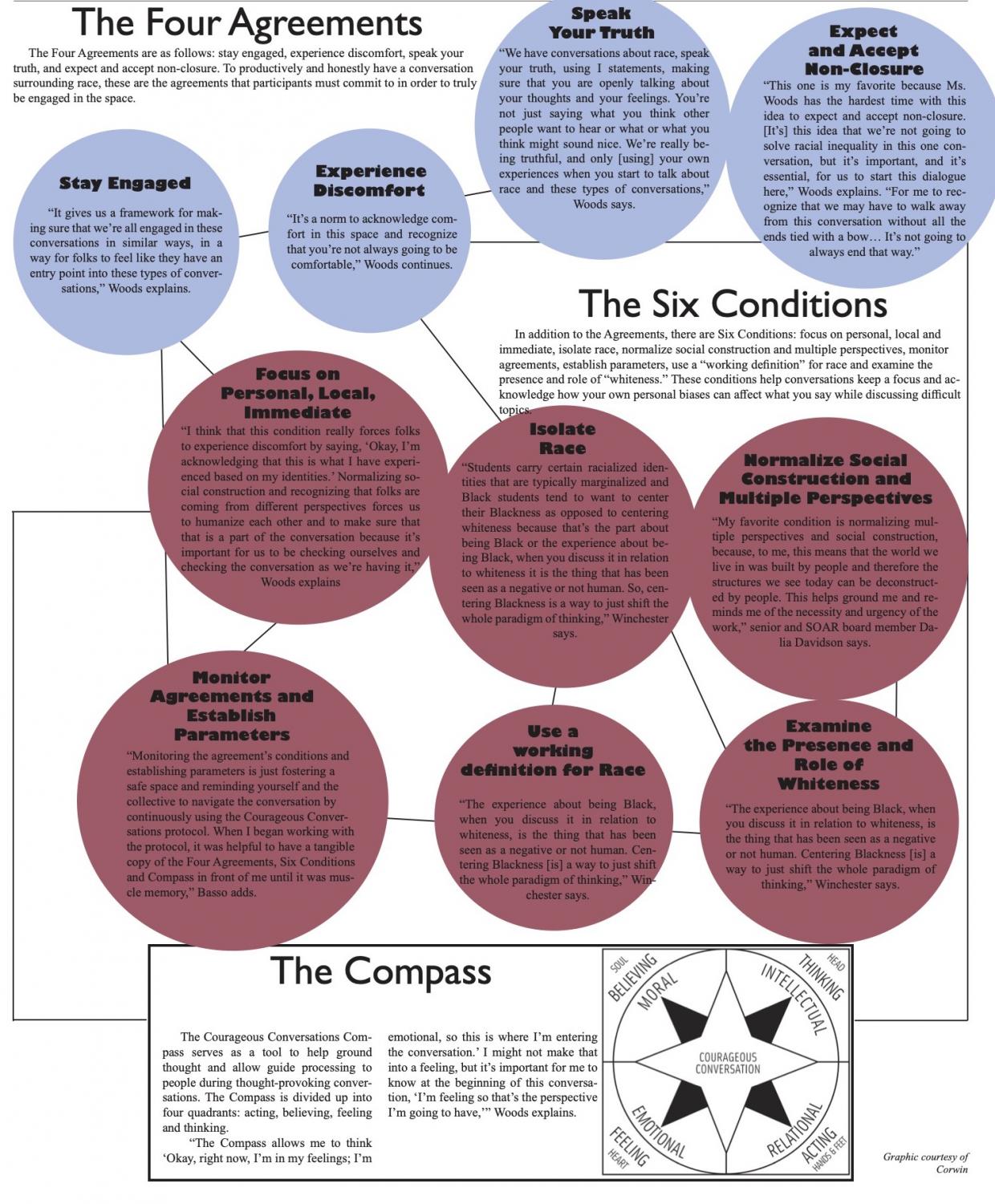


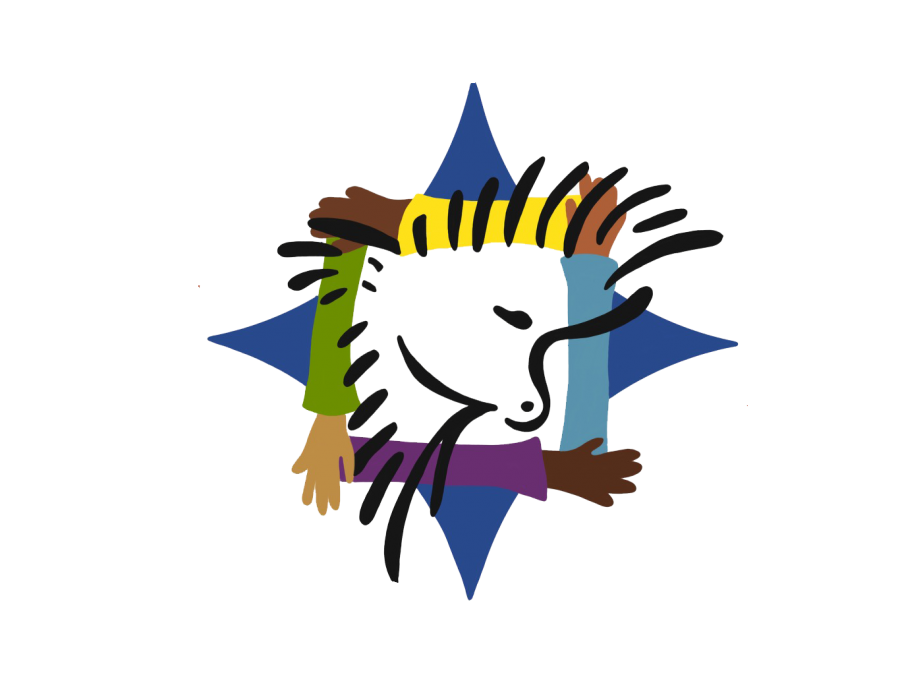
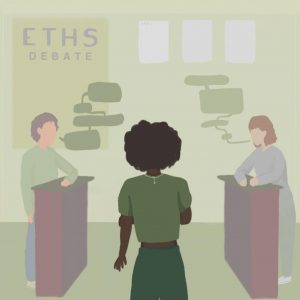
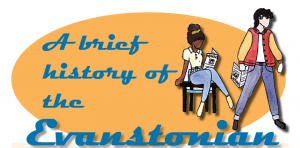
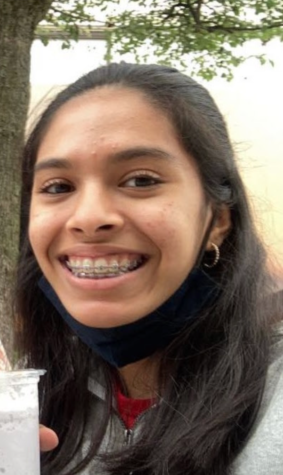
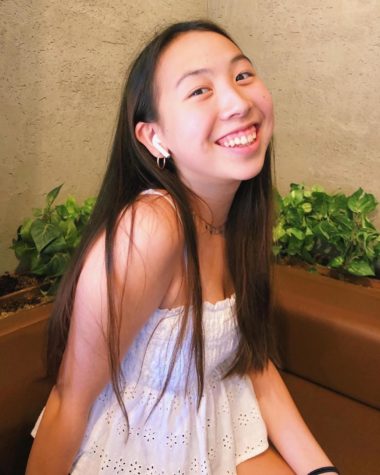







John Kennedy-Farrell • Mar 24, 2021 at 9:53 pm
Great article, Sophie!